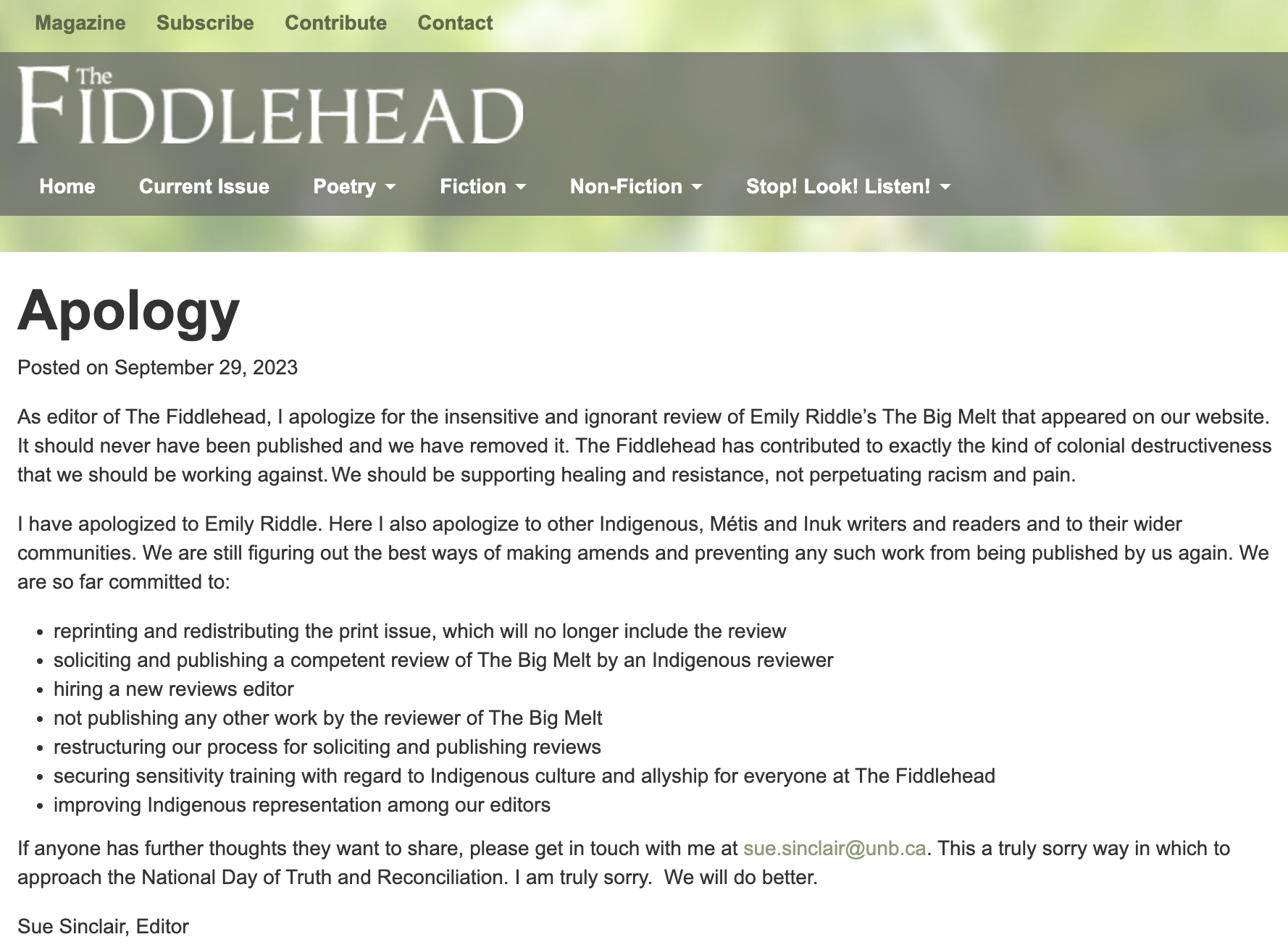 Wayne Jones has published short stories as well as non-fiction in journals and newspapers in both Canada and the U.S. He has self-published a mystery novel as well as a book about personal minimalism, and is co-writing a biography about standup comedian Greg Giraldo. In the library field, he has edited or co-edited six books, and published over thirty peer-reviewed articles and book reviews. He is currently a member of the editorial board of a library journal from a multinational publisher, and has served in the past as chief editor of both a library association magazine and an editors’ association newsletter. Wayne is currently an academic librarian, and also has worked as a freelance editor. He has a special personal and research interest in Samuel Johnson, the great 18th-century writer, poet, biographer, and lexicographer. Wayne lives in Ottawa, and more information about his writing and other interests may be found at waynejones.ca.
Wayne Jones has published short stories as well as non-fiction in journals and newspapers in both Canada and the U.S. He has self-published a mystery novel as well as a book about personal minimalism, and is co-writing a biography about standup comedian Greg Giraldo. In the library field, he has edited or co-edited six books, and published over thirty peer-reviewed articles and book reviews. He is currently a member of the editorial board of a library journal from a multinational publisher, and has served in the past as chief editor of both a library association magazine and an editors’ association newsletter. Wayne is currently an academic librarian, and also has worked as a freelance editor. He has a special personal and research interest in Samuel Johnson, the great 18th-century writer, poet, biographer, and lexicographer. Wayne lives in Ottawa, and more information about his writing and other interests may be found at waynejones.ca.
An irritated Wayne recently wrote a tweet to the editors at Quill & Quire.
Hello Sue,
My subscription to Quill & Quire expired with the March issue, but you just sent me the April issue. Please don’t send me any more.
I don’t know if you saw my tweet on February 23 about why I was happy to see the subscription come to an end — as has been typical, I never heard a word, just as I never heard whenever I submitted letters or otherwise communicated with your magazine during the past year. Most publications at least do their readers the courtesy of acknowledging their submissions, even to say no. You don’t. Or didn’t.
Here’s a link to my tweet, and I’ve also pasted the text of it at the end of this email.
I just breezed and browsed through the April issue. I can’t believe that you can’t see that there’s a huge problem there. Have a look through the reviews of fiction. One talks about how it’s hard to sympathize with a character because he is unlikeable, and can’t accept the fact that love can be sudden and doesn’t have to “gradually develop” in the tried and tired cliché fashion. The review is also full of complaints about politically incorrect stereotyping which “render the novel unpalatable, given how closely the story is aligned with its central character.” I don’t see the sense of this. King Lear is also pretty unpalatable, but the author has done all right for himself.
All the other reviews are little more than summarizations of the novels. Very infrequently are the words — the words, the thing that literature is made from — very seldom are they ever quoted. Instead the reviewers complain about “very little actually happening” or that “there are essentially no good guys in this story.” You really have to do more than this. Raise the bar, focus on the language, forget about story or no story. You are in a privileged position as Q&Q editor and you have an opportunity to shape how Canadian readers view literature. Please, please make the reviews better.
Thanks for reading this far (hopefully).
Wayne Jones
We’re used to stupid comments from people who don’t understand the true nature of fiction.
“You wrote a story about a rapist, so you must want to rape women.”
“You wrote a story about a serial killer, therefore you must harbour homicidal urges.”
It’s a dreary task, having to explain this one more time, but you can never know a writer through his work. In my case, I’ve been middle class and comfortable for most of my life. I don’t think anyone should be surprised that I’m interested in the opposite of that. I’m sitting on my middle-class comfortable deck right now, enjoying my view of eager new buds on the cherry tree and the very first bee sightings of the season. Naturally, my thoughts turn to race wars, global smuggling rings, state-sponsored ultra-violence, the imminent collapse of our overly complicated, unsustainable civilization. Give me conflict, drama, and pain. No good fiction comes from a pleasant afternoon on the deck. A healthy, happy, well-adjusted character bores me.
Ignorance of the writing process can be forgiven in the gen pop, but what of a reviewer in Quill & Quire who suffers from the same confusion? These are the gatekeepers, perhaps the ultimate gatekeepers, protecting us from the “bad” and elevating the “good,” with a reasonably well-formed argument explaining why it’s one or the other. At least that’s what I’ve come to expect from reviewers. When the ultimate gatekeepers, those capable of making or breaking a book with a few sharp words, reveal an ignorance of the basic concept of fiction, we’re all in trouble.
Dear Reviewer,
Your affection or disdain for the character of a novel is not relevant in determining the quality of that novel. Comparing a fictional world to the world as it should be (in your opinion) is also not helpful. Completely ignoring issues of craft and language bring into question your general competence and your motivation for writing reviews. A novel is not a factual record of anything. Stop talking about how much you “learned” while reading a novel. A novel shouldn’t be viewed through the lens of your politics. Fiction is a vehicle for the exploration of uncensored, authentic visions from someone’s imagination.
Do you agree with all, some, any of this? Where do we disagree?
I agree with all of that. A novel is the result of the marshalling of words on one subject or another so as to describe something or to produce a certain effect. IMO a novelist should be more concerned about the marshalling than about the subject matter. The how is more important than the what. How did the author put together his words in order to produce what he produced? That should be the question that readers — and definitely reviewers — should be asking. I think the focus in magazines such as Q&Q is on the what (the subject matter) more than on the how because that is easy to write about. “Oh, wow, this character had an adventure.” Or: “this is an accurate portrayal of an overweight middle-aged librarian.” Or: “this is a pretty violent scene and I found it hard to read.” And on it goes.
I’ve dumbed down these made-up examples — but not much. Readers of a review magazine can read this kind of commentary and understand and relate to what the reviewer is saying. The fault, and my complaint, is not really with the reader. It’s with the review magazine and with the editor who apparently sees no responsibility to heighten the dialogue a little, or, worse, is incapabable of doing so.
I was a student of the great critic and teacher Northrop Frye at the University of Toronto in the early 1980s. He was a legend. The one question I ever had the courage to ask him in that course, I don’t quite remember, but I remember his answer: “Literature is a structure of the imagination, not a structure of belief.” I’m not sure I understood what he was talking about at the time, in my tender 20s, but I’ve thought about that answer a lot over the years since. Pardon me if it’s blatantly self-evident what he is saying to the adults reading this, but as I understand it now, he meant: literature is to be judged by the rules of making things up, not by whether it is true to this fact or the other. As you put it: “a novel is not a factual record of anything.”
I never consider subject matter when I read or critique a literary work. I have been more intrigued in the past with novels that are not really about anything — for example, Nicholson Baker’s The Mezzanine — and just can’t bear to read a single paragraph in an earnest novel about some important social issue. Don’t get me wrong: I am interested in social issues, but I don’t think that a novelist’s acute analysis of any particular issue is a criterion on which he should be critiqued. It doesn’t matter whether a novelist got the facts right or wrong. What matters, and the only thing that matters, is: how did he use words to portray something. “That is all,” as Oscar Wilde put it.
You’re a long-time subscriber to Q&Q. How long has this been happening?
I’ve subscribed to Q&Q several times over the past 30 years or so. I just re-subscribed last year with the main intention of keeping up with what is going on in the Canadian literary scene. It turned out it was impossible for me to tell. Virtually none of the reviews ever mentioned anything about the writing, about how the authors used words to achieve an effect. It was all dumb stuff about learning lessons, and important portrayals, and on and on. I could tell on the basest level what was going on in Canadian fiction — I could see the title and the author — but I had no way of knowing what was potentially “good” or “bad.”
I’ve been very disappointed that I have not heard a single word from the current Q&Q editor, Sue Carter, about any of my comments and complaints. Perhaps I am a solo voice in a chorus of a thousand encomiums she receives every month, and so I’m just a crazy old crackpot to be suitably ignored. Still, it’s not very polite or Canadian, is it?
Now that you’re done with Q&Q, which source do you trust for quality reviews?
I don’t read enough fiction any more to know what the sources are.
In our outrage culture, why isn’t anyone outraged about this?
I truly blame the magazine editors. They should take more responsibility for exposing readers to new ways of looking at literature. People aren’t outraged because they don’t see enough to get mad at anything. They’re used to Labatt Blue.
I’m trying to imagine what happened at Q&Q. I’ve considered a few possibilities:
1. The editors didn’t realize this was happening.
2. The editors realized this was happening but didn’t care.
3. The editors realized this was happening and thought it was a good thing.
Since they don’t seem keen on explaining, how do you think they got to this point?
I don’t know what the particular answer is for Q&Q, but I can see one or other of these answers as being applicable to any one magazine. Laziness, unawareness, distorted views of what constitutes a good review.
What is the solution to this problem if no one seems to think it’s a problem?
Keep complaining.




Leave A Comment